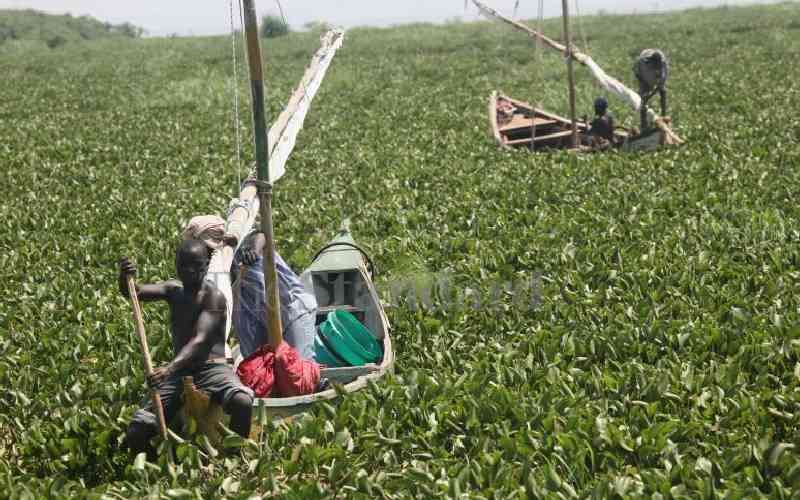×
The Standard e-Paper
Stay Informed, Even Offline

One day in 2021, Joseph Nguthiru and his classmates ventured out for a boat ride on Lake Naivasha.
What started as an exciting and fun-filled adventure ended up being a scary situation after the boat got stuck due to a hyacinth invasion in the lake.